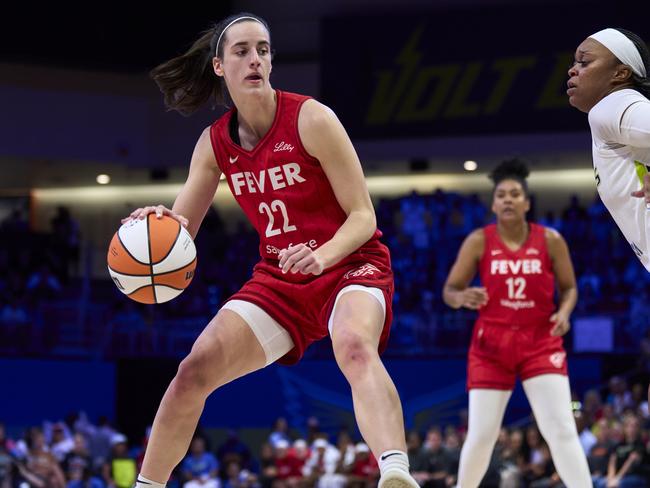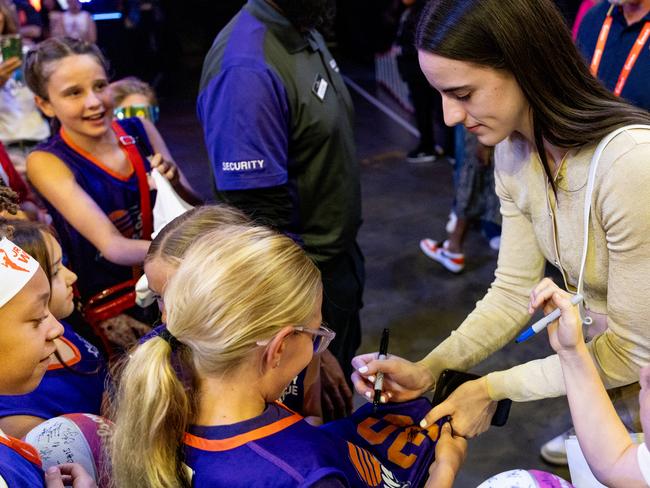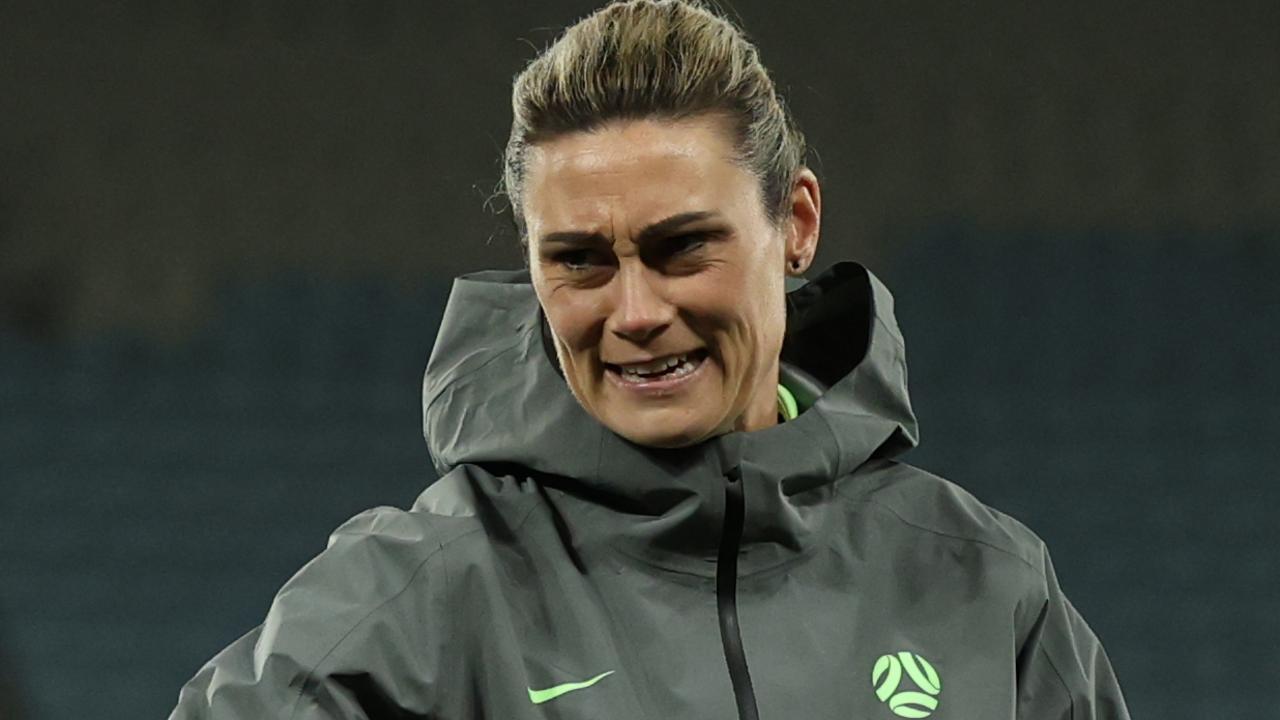‘Arenas are selling out’: Inside the Caitlin Clark effect and why Australia should take note
Such is the phenomenon of WNBA super star Caitlin Clark, one commentator has coined the phrase ‘Clarkonomics’ to describe the extraordinary economic effect of her stardom.
Women's sport
Don't miss out on the headlines from Women's sport. Followed categories will be added to My News.
It’s already being dubbed the Caitlin Clark effect, and Australia should take notes.
The WNBA has seen a drastic boom in audience growth spanning the past 12 months, with viewership of girls aged 17 and under increasing by a staggering 181% alone while the total engagement reaches four times what it was this time in 2023.
ESPN sports commentator Debbie Antonelli has gone so far as to coin the phrase ‘Clarkonomics’ – describing the economic effect the Indiana Fever star brings to the WNBA in her role as an athlete.

So what’s so special about Caitlin Clark? How is she not only growing the league, but changing it for the better?
“It’s obvious, arenas are selling out,” Los Angeles Sparks Vice President Ilene Hauser told this masthead at the Ministry of Sport Women in Sport Summit 2024 on the Gold Coast.
“(It’s) the same with the likes of Angel Reese (Chicago Sky) and Cameron Brink (LA Sparks).
“When Chicago and Indiana visit other teams, ticket sales go up … you’re seeing their effect from a business side of things,” she said.
“There’s an interest that we haven’t seen in a long time.”
Equipped with three decades experience in women’s sport, including 15 years with Nike were she helped launch two professional leagues, Hauser pointed to Clark’s connection off the court being as vital to league growth as the stats she produces on the court.
“The one thing that’s really interesting about Caitlin that nobody talks about, is how she goes and signs autographs after every game and she gets into the stands,” she said.
“I do believe it’s putting pressure on other athletes to do the same thing.
“That’s been a part of growing her fan base and she’s just very relatable.”

The WNBA has hit the 1 million viewer mark over a dozen times this season, breaking a dry spell of 16 years.
Hauser said the recent swarm of engagement was last seen in 2013 when the likes of Skylar Diggins, Elena Delle Donne and Brittney Griner were making headlines.
“That was the last big hype,” she said.
“With those three in 2013, people started really watching the WNBA.”
Clark aside, the United States have an established program directed at college athletes which provides indisputable support for when the time comes to ‘turn pro.’
It’s called NIL (name, image and likeness), and Hauser believes it was time Australia took the leap of faith to incorporate a similar structure.
“As it’s evolved, it’s giving visibility to these athletes while they’re in college,” Hauser said.
At its crux, NIL connects athletes with sponsors with the goal of entering into contracts which endorse products, in turn profiting financially from their personal brand.
“It has to be what they’re doing on the court and also their voices … visibility and influence off the court.
“The players are just so good right now but it has to be a combination of both.
“Athletes in the WNBA are very accessible, they do the extra things in the community.
“With Caitlin, she’s not afraid to be around fans.
“I think Paige Bueckers (UConn Huskies) will do the same thing next year when she comes into the WNBA.”

Despite all its glory, the initial boom brought with it an influx of pitied ‘she’s better than her’ debates which flooded social media – most of which against Clark.
“There were some players that wanted to prove that she wasn’t going to be so good when she got to the WNBA.,” Hauser said.
“Caitlin has come in and just added to it.
“I do believe some of the competitive fire between athletes is still there, but it seems to be tapering off … everyone is starting to support everybody.”
They say all publicity is good publicity, and perhaps the Caitlin Clark effect puts a bow on that saying.
“(Caitlin) has done a great job of blocking out whatever negative stigmas are out there about her.
“She respects the game and the players and everybody is seeing that.”
Clark’s stardom is far from slowing down, the rookie last week recording 19 assists in Fever’s 101-93 loss to the Dallas Wings and breaking the previous WNBA record of 18 set by Chicago’s Courtney Vandersloot in 2020.
“Not only is she making the team better, she’s making the league better,” Hauser said.
Those are lessons to be learned by Australian sports across all codes and genders.




